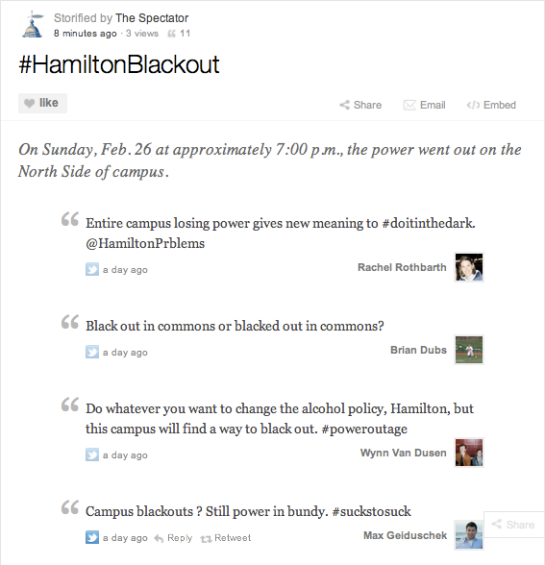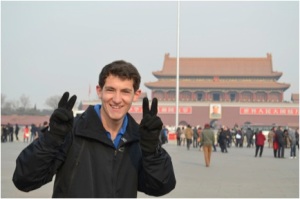by Peter Cannavo
Associate Professor of Government
In the 1965 case of Griswold v. Connecticut, the U.S. Supreme Court struck down, on the grounds of privacy, a Connecticut law banning the sale of contraceptives (http://supreme.justia.com/cases/federal/us/381/479/case.html). Griswold of course took place during the 1960s, when American society, and industrialized nations in general, experienced a massive social revolution – affecting individual liberties, sexual norms, gender relations, and racial equality – that basically created the world we live in today. The legacy of the Sixties continues to be fought over, particularly around issues like abortion and equal rights for gay people (though of course abortion is legal and full LGBT rights are becoming more and more of a reality), but practices such as the use of birth control or the right of women to participate as full citizens and enter the workforce have won widespread acceptance in society at large. According to the Guttmacher Institute, “Virtually all women (more than 99%) aged 15–44 who have ever had sexual intercourse have used at least one contraceptive method.” (http://www.guttmacher.org/pubs/fb_contr_use.html)
Though the Catholic Church has officially opposed contraception, there has been widespread reporting that 98% of Catholic women have used contraception. This is actually misleading, as the Washington Post’s Fact Checker reports (http://www.washingtonpost.com/blogs/fact-checker/post/the-claim-that-98-percent-of-catholic-women-use-contraception-a-media-foul/2012/02/16/gIQAkPeqIR_blog.html).
However, the more meaningful figure, as reported by the Guttmacher Institute and noted by Fact Checker, also substantiates the acceptance of contraception: 68 percent of sexually active Catholic women who are not pregnant, post-partum or trying to get pregnant have used “highly effective methods” of birth control: 32 percent relied on sterilization, 31 percent relied on the birth control pill, and five percent relied on the IUD (http://www.guttmacher.org/media/resources/Religion-FP-tables.html).
Given the widespread acceptance of contraception, it is rather jarring that one of our two major political parties may very well nominate a candidate, former Pennsylvania Senator Rick Santorum, who is not only well-known for his opposition to same-sex marriage but also has some strong positions on birth control. Santorum has said that he will use the Presidential bully pulpit to inveigh against contraception (http://www.csmonitor.com/USA/Elections/President/2012/0217/Rick-Santorum-Top-7-culture-war-moments/On-the-dangers-of-contraception), and he is OK with individual states outlawing contraception (http://www.huffingtonpost.com/2012/01/03/rick-santorum-birth-control-sodomy_n_1181291.html).
Santorum’s candidacy for the Republican nomination of course resonates with those voters angered by the Obama Administration’s efforts to require health insurance plans to cover contraceptives without a co-pay. Obama had earlier issued a requirement that religiously affiliated charities and higher education institutions pay for their employees’ birth control. He revised this plan by requiring that health insurance companies, not the employers themselves, pay for contraceptives (http://www.nytimes.com/2012/02/11/health/policy/obama-to-offer-accommodation-on-birth-control-rule-officials-say.html?_r=1&scp=6&sq=obama%20birth%20control&st=cse), though admittedly in the case of self-insured institutions, like the Catholic hospital my wife Helen works for, there may be little difference in the end.
This compromise was not enough to mollify Catholic Church authorities, other religious officials, and political conservatives. The U.S. Conference of Catholic Bishops is urging support for a bill sponsored by Missouri Republican Senator Roy Blunt (http://www.rollcall.com/news/bishops_urge_senate_adopt_roy_blunt_birth_control_bill-212466-1.html?pos=hln), along with Kelly Ayotte (R-NH) and Marco Rubio (R-FL), that would allow private insurers to opt out of the requirement if “providing coverage (or, in the case of a sponsor of a group health plan, paying for coverage) of such specific items or services is contrary to the religious beliefs or moral convictions of the sponsor, issuer, or other entity offering the plan.” The measure would not allow the Federal government to “require an individual or institutional health care provider, or authorize a health plan to require a provider, to provide, participate in, or refer for a specific item or service contrary to the provider’s religious beliefs or moral convictions” (http://www.consciencelaws.org/laws-proposed/usa/federal13a.htm). Sponsors and supporters of the proposed legislation, including many Republicans, argue that it would protect freedom of religious exercise and conscience from intrusion by the government. The bill itself cites Thomas Jefferson’s championship of religious freedom.
The religious liberty argument has been oft repeated of late. However, it is deeply problematic for several reasons. First of all, what if a woman employed by a religiously affiliated institution is herself not a member of the institution’s sponsoring denomination or belongs to that religion but disagrees with its official policy? She has to either bear the cost of birth control herself (and some highly effective methods are expensive – in the case of the pill, the cost runs from $160-600 per year, and an IUD involves an upfront cost of $500 to $1,000; see http://money.usnews.com/money/blogs/alpha-consumer/2010/08/27/the-real-cost-of-birth-control-), or she must either forgo such birth control methods or find another job. She therefore faces what might be a serious imposition on her own fundamental beliefs and practices. Moreover, the proposed legislation, as a number of critics have pointed out, might go beyond birth control, as it opens the way to employers denying coverage for various medical services because of moral or religious objections to such things as blood transfusions.
More interestingly, the right of religious liberty is itself not absolute. I first want to turn to John Locke (1632-1704), an English philosopher who is one of the founders of the liberal tradition, was an early voice for religious liberty, and was also a direct inspiration for the U.S. Declaration of Independence and many of our own conceptions of rights.
In his 1689 Letter Concerning Toleration (http://www.constitution.org/jl/tolerati.htm), Locke argued that the state should largely stay out of religion and tolerate most Christian faiths, as well as Jews, Muslims, and pagans, so long as religious groups do not threaten public order or seek to violate the rights of others. However, he advocated denying tolerance to atheists, because their lack of fear of divine retribution made them untrustworthy in oaths and contracts; denying tolerance to Catholics, because of their adherence to the Pope, at that time a foreign “prince” with considerable secular power; and, ironically, denying tolerance to the religiously intolerant themselves. Whatever the merits of Locke’s positions here, his underlying argument is correct, namely that that in certain cases of compelling state interest, religious liberty could be circumscribed. For example, though Locke saw no problem in tolerating animal sacrifice, as we tolerate the killing of animals for other reasons, he laid down an important exception:
But if peradventure such were the state of things that the interest of the commonwealth required all slaughter of beasts should be forborne for some while, in order to the increasing of the stock of cattle that had been destroyed by some extraordinary murrain, who sees not that the magistrate, in such a case, may forbid all his subjects to kill any calves for any use whatsoever?
The state could therefore prohibit all killing of cattle, for religious or any other reason, religious objections notwithstanding. Again, a compelling state interest.
State interests of course must not be invoked lightly, and the courts give close scrutiny to any infringement on religious liberty. Indeed, religious practices are generally given additional latitude. Yet, I would argue that there is indeed a compelling state interest in ensuring that women have access to contraception on a par with their access to other medical services. Access to contraception prevents unwanted pregnancy, it allows parents to properly space their children, and it reduces the frequency of abortion. Moreover, birth control pills may be used for medically necessary reasons other than contraception. But most importantly, the role of the state, as Locke and the liberal tradition have suggested, is to protect the basic liberty of the individual. As more recent political theorists like John Rawls have argued, the exercise of individual liberty includes not only freedom of speech, assembly, and conscience, but also the freedom to formulate and pursue one’s own plan of life, consistent with a similar liberty for others. Such freedom rests on a strong measure of individual autonomy, as well as access to basic material resources that make such autonomy possible. A woman’s autonomy surely includes the ability to control her own sexuality and fertility, to decide if and when to be a parent, and to have access to medical devices or services that make such control possible.
My own views tend somewhat less toward liberalism than toward civic republicanism, but here there is also a strong argument for a compelling state interest in making birth control available to women. Civic republicanism emphasizes the importance of citizens to have the virtues and the opportunities to actively participate in the collective self-government of the community and, through political deliberation, determine and promote the common good. One of the foundations for republican citizenship is the freedom of individuals from personal ties of dependence on powerful political or economic interests. Earlier republicans argued that a citizen whose livelihood is dependent on an employer or landlord, or on the good graces of a particular government official, would not promote the common good of the community but the interests of his or her patron. Such a dependent citizen would not exercise civic virtue. Partly for this reason, republicans like Thomas Jefferson favored a society of small, independent property owners as a safeguard of civic virtue and the common good. Nineteenth century republicans also opposed wage labor and instead favored self-employment. Now, some of these views are quaint or outmoded in a modern, industrialized society, but the importance of personal independence still resonates. That independence will not likely come from owning a small farm and need not involve self-employment, but one could argue that control over one’s own body – and perhaps especially in the case of sexuality and procreation, where one could otherwise become subordinate to the wishes of a spouse or partner – presents an analogy to the earlier ideal of economic independence. Moreover, if women are to participate in the workforce and the public square as full citizens, they must be able to determine when and if they will bear children and become parents. And the same goes for their procreative partners. Any attempt to infringe on the access of a woman to birth control and other family planning services is basically a recipe for second-class citizenship. Some may have strong religious objections to such services, but I would argue such objections should not carry the day.
 The vanilla frosting was also tasty. It was fluffy, which was nice, because I think when frosting is too heavy, the entire cupcake experience becomes a little overwhelming. You don’t want the cupcake and the frosting to compete, because they need to work together and complement one another. Also, as an added touch, it was topped with bits of shaved white chocolate, which was super classy.
The vanilla frosting was also tasty. It was fluffy, which was nice, because I think when frosting is too heavy, the entire cupcake experience becomes a little overwhelming. You don’t want the cupcake and the frosting to compete, because they need to work together and complement one another. Also, as an added touch, it was topped with bits of shaved white chocolate, which was super classy.





